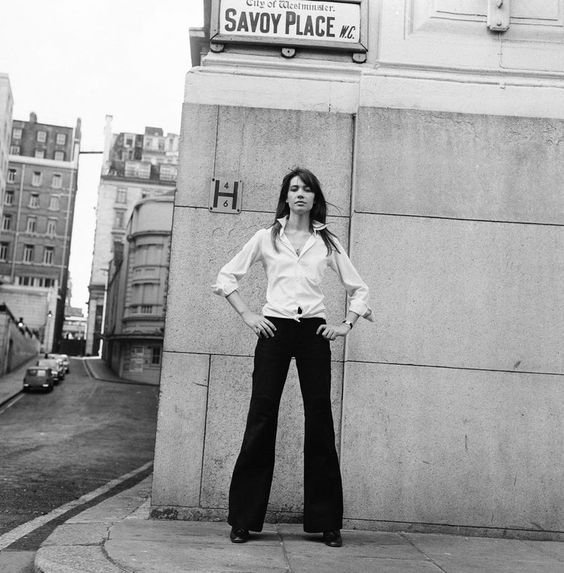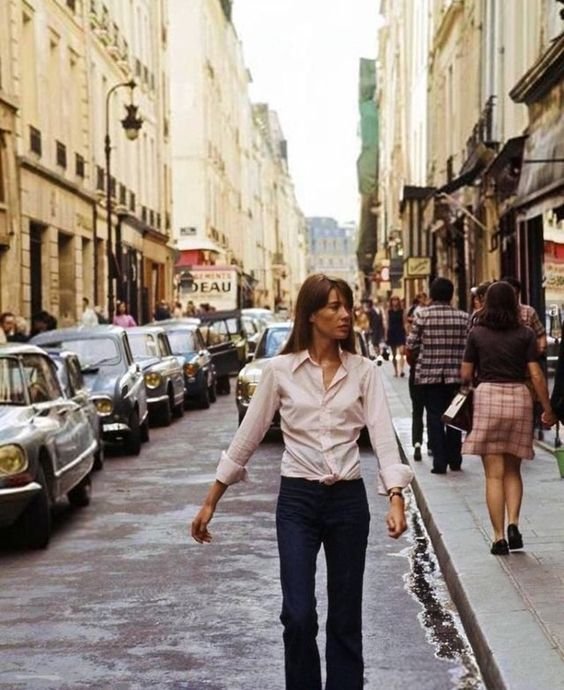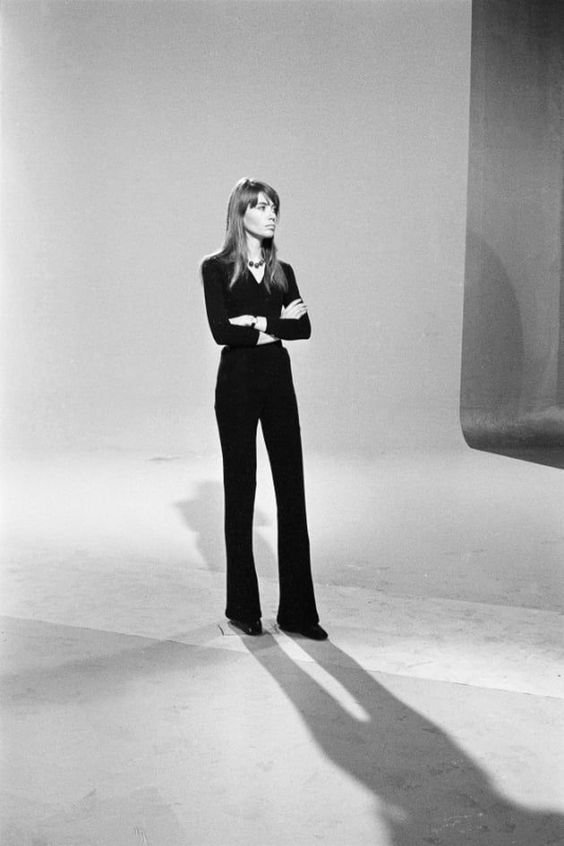The Francoise Factor:
Immersed in the buzz of the 1960s, a figure of intrigue emerged onto the French music scene, captivating audiences not only with her melodic tunes but also with her uniquely androgynous style. This enigmatic persona belonged to none other than Françoise Hardy, the icon who beautifully blurred the lines between pop culture and fashion.
Part of the vibrant "yé-yé" era, Hardy brought a new sensibility to style, one that was daring yet understated, playful yet sophisticated. Her signature look, defined by the sleek lines of a pixie cut, the casual elegance of slim trousers, and the timeless charm of turtlenecks, signaled a shift in the prevailing winds of fashion. In Hardy's hands, androgyny became a chic statement, a testament to her ability to transform simple clothing items into vehicles of self-expression.
Françoise Hardy was more than a singer; she was a fashion revelation, a disrupter in a world obsessed with flamboyance. She did not need elaborate embellishments or ostentatious displays to create an impact. Instead, she cultivated an effortless sense of style that emanated from her self-assured demeanour. Hardy was the personification of the adage that less is more, and in doing so, she became an inspiration for designers and fashion enthusiasts alike.
Yves Saint Laurent, one of the most revered names in fashion, was notably influenced by Hardy's style. The menswear-inspired looks that Hardy donned with such grace found their way into Saint Laurent's collections, a nod to the singer's enduring impact on the world of high fashion.
As the years rolled on, the simplicity and sophistication that marked Hardy's wardrobe continued to reverberate in the fashion world. The 1990s saw a return to minimalist styles, championed by designers like Calvin Klein and Helmut Lang, their collections bearing an unmistakable trace of Hardy's influence. Her contribution to fashion had surpassed the fleeting nature of trends; she had, instead, become a timeless icon.
Hardy's impact was not confined to the world of fashion. Her musical contributions were equally significant. With her poetic lyrics and unique voice, she offered a fresh perspective within the pop music industry. She proved that a female artist could command attention without resorting to sensationalism, relying instead on talent and authenticity.






